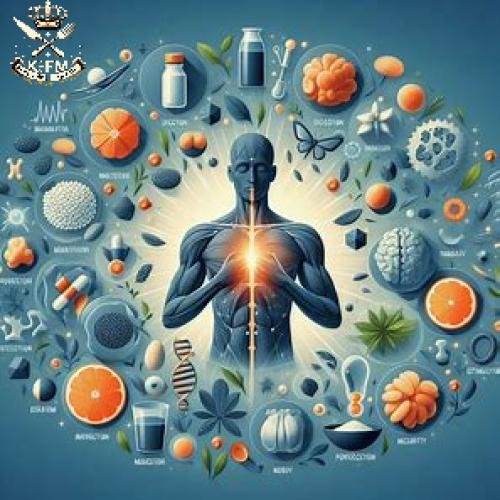
Potatoes and Their Nutritional Content
Potatoes are a staple food in many cultures around the world and are a rich source of starch, containing about 19 grams of starch per 100 grams. However, starches are not necessarily a cause of weight gain if consumed in moderation and as part of a balanced diet.
Benefits of Potatoes:
Vitamins:
- Vitamin C: Helps strengthen the immune system, protect the body from diseases, and enhance iron absorption.
- B-complex Vitamins: Play a vital role in energy production and converting food into fuel for the body.
- Potassium: Helps regulate blood pressure and supports heart health.
- Vitamin B6: Plays a crucial role in the health of the nervous system by aiding in the production of neurotransmitters that regulate mood and sleep. It is also essential for protein and carbohydrate metabolism, boosts the immune system, and protects the body from illnesses.
Antioxidants:
- Chlorogenic Acid: Helps protect cells from damage caused by free radicals and reduces the risk of cardiovascular diseases.
- Anthocyanins: Give potatoes their purple or red color and have anti-inflammatory and antioxidant properties.
Fiber:
- Dietary Fiber: Contributes to a feeling of fullness, improves digestion, regulates blood sugar levels, and reduces the risk of heart disease and obesity.
Other Benefits:
- Good Source of Starch: Provides the energy needed for the body.
- Easily Digestible: Facilitates digestion and does not cause bloating.
The Impact of Frying on Potatoes
However, the real issue lies not with the potatoes themselves, but with the way they are prepared. When potatoes are fried in oil, their nutritional properties change significantly. During frying, potatoes absorb large amounts of oil, which substantially increases their calorie and fat content.
Fried oil is the primary cause of weight gain associated with potatoes, not the potatoes themselves. Oils are high in fats and calories, which can contribute to weight gain if consumed in large amounts and frequently. Additionally, fried foods are generally rich in saturated fats and unhealthy fats, which can negatively affect heart health and increase the risk of chronic diseases.
Saturated Fats and Their Harmful Effects
Saturated fats are a type of fat that is commonly found in fried and processed foods. They accumulate in the body and lead to many health problems. Fried foods, like French fries, contain large amounts of saturated fats and calories, which can lead to weight gain and an increased risk of cardiovascular diseases.
Harmful Effects of Saturated Fats:
- Increased levels of harmful cholesterol in the body.
- Increased risk of heart diseases.
- Increased fat in the body, which may lead to obesity.
How to Eat Potatoes in a Healthy Way
To maximize the benefits of potatoes without gaining weight, you can follow some simple tips. First, it's recommended to eat potatoes boiled or baked rather than fried. Cooking methods like boiling or grilling preserve most of the potato's nutritional benefits without adding excessive fats.
Second, you can enhance the nutritional value of potatoes by pairing them with a variety of fresh vegetables and healthy proteins such as chicken or fish. This helps achieve a balanced diet and reduces the likelihood of overeating potatoes on their own.
Third, you can enjoy boiled or baked potatoes with fresh herbs like parsley and dill, or chopped green onions. You can also use healthy sauces like yogurt with herbs or sugar-free hot sauce.
Finally, it's advised to control portion sizes and maintain moderation when consuming potatoes as part of a balanced diet. Eating potatoes in moderation, within a diet that includes a variety of healthy foods, will not cause weight gain and can be part of a balanced and beneficial eating pattern.

Frequently Asked Questions:
Can you eat potatoes on a low-carb diet?
Potatoes contain high levels of carbohydrates, making them unsuitable for diets like keto. However, they can be included in moderation in low-carb diets, especially if they are part of a balanced meal with proteins and vegetables.
Do potatoes contribute to an increase in blood sugar levels?
Yes, potatoes contain carbohydrates that can raise blood sugar levels. However, consuming potatoes with fiber-rich or protein sources can help reduce their impact on blood sugar levels.
What are the best healthy ways to prepare potatoes?
To reap the nutritional benefits of potatoes without adding unhealthy fats, it is recommended to prepare them by boiling or grilling instead of frying. You can add herbs and natural spices to enhance flavor without adding extra calories.
Can potatoes help with weight loss?
Potatoes are a rich source of starch, but they can be part of a balanced diet that helps with weight control. Sweet potatoes, in particular, are an excellent choice as they contain more fiber and beneficial nutrients like Vitamin A and iron compared to regular potatoes.
Are sweet potatoes better than regular potatoes for weight loss?
Yes, sweet potatoes have a lower glycemic index than regular potatoes, meaning they raise blood sugar levels less, which helps control appetite and increase energy levels. They are also rich in fiber, which helps you feel full for longer.
Conclusion: Potatoes are a food rich in nutrients, but the way they are prepared plays a significant role in determining their nutritional value. The belief that potatoes cause weight gain is a misconception, as obesity is more closely linked to how potatoes are prepared, especially when fried in oil. By following healthy cooking methods and consuming potatoes in moderation, their nutritional benefits can be enjoyed without the concern of weight gain.
We hope this article has shed light on the truth about potatoes and their relationship with obesity, offering valuable tips on how to include them in a healthy and balanced diet. Always remember that moderation and balance are the keys to maintaining good health and a healthy lifestyle.




















